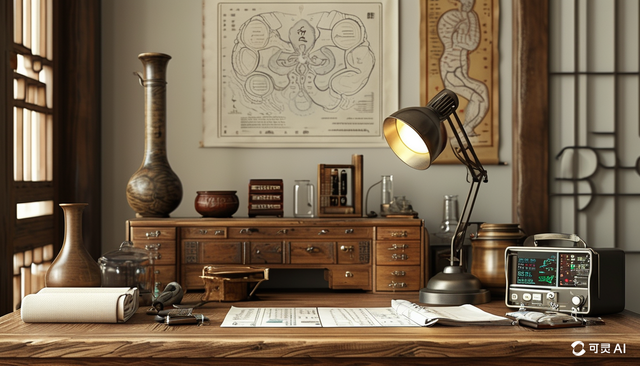在绝望与希望之间:一次就医经历引发的中西医之思

上周三还是带父亲去看了一位老中医,在家吃中药,如果完全不治疗的话,对病人的信心也是很大的打击。中医治疗先无论有没有效果,毕竟给病人带来希望。
其实网络上也早有中医和西医之间的争论。在这之前我是偏向于西医的观点的。认为西医讲的是科学。中医是古代巫术的传承而已,基于一些很玄学的理论,无法验证。这一次带父亲看病,我对这个问题有了一点新的认识,
先前在同济看的两位西医专家一位直接就说这个就对症治疗就完了,经很晚期了。另一个也说家属自己考虑选择治疗还是不治疗吧,治疗就是化疗,可能延长两三个月。众所周知,癌症的化疗是相当痛苦的,多出的两三个月的生命,相对于所承受的化疗痛苦来说是否值得?
不过西医的这些话其实是有一个问题的。那就是他们是基于以往经验,用一个比较大概率的事件来给患者判死刑。但是这个大概率并非百分之百,即便是癌症之王也有5%五年生存率。数学中有个贝叶斯公式,它表明如果预先对一个事情持绝对肯定或绝对否定的观点,那么即使面对一些非常明确的证据,也仍然无法纠正自己的观点,从而产生偏见。西医大夫们正是将大概率事件等同于百分之百。但每个患者都是单独的个体,是有希望成为那5%的,西医大夫这种偏见,就熄灭了这些人的希望之光。
我们找去看的这位老中医先不说到底有没有用,至少他的态度是积极的。在看到我爸的病历之后,用很坚定的语气说了一句“莫急,有药医。”也许他这是出于商业目的,希望病人能够在他这里看病领药。至少病人受到了很大的鼓励和燃起了求生的意愿。明显看到爸爸的心情变了一个样子,变得有些积极起来了。看完病之后,当天晚上开始干劲十足地煎药,让自己能够好起来。虽然希望很渺茫,但有希望总比绝望对身体的影响要正面。安慰剂效应是医学上承认的,人体的意识对身体的作用确实存在着很多西医还没有认清的地方。
当然大概率的事件更容易变成事实,这也是热力学第二定律熵会一直增大的原因。尽管残酷,西医的结论大多数情况下比中医更准确。我们找的这位老中医,名声很响,很多癌症病人在他这里看病拿药,他的号也非常难挂到。应该是很靠谱的。但理性也提醒我不能期望过高,这很可能是幸存者偏差,之所以很少差评,可能仅仅是因为那些没有收到效果的患者都已死去。
Last Wednesday, I took my father to see an old Chinese doctor and ate Chinese medicine at home. If there is no treatment at all, the confidence of the patient is also a great blow. No matter whether the TCM treatment is effective or not, after all, it brings hope to the patients.
In fact, there have long been disputes between Chinese medicine and Western medicine on the Internet. Before that, I was inclined to the Western view. I think Western medicine is about science. Chinese medicine is just the inheritance of ancient witchcraft, based on some very metaphysical theories, can not be verified. This time I took my father to see a doctor, I have a new understanding of this problem,
Earlier in Tongji to see two western medicine experts directly said that this symptomatic treatment is over, the very late. Another also said that the family members themselves to consider the choice of treatment or no treatment, treatment is chemotherapy, may extend two or three months. As we all know, cancer chemotherapy is quite painful, the extra two or three months of life, relative to the pain of chemotherapy is worth it?
However, there is actually a problem with these words of Western medicine. That is, they are based on past experience, using a relatively high probability of the event to sentence the patient to death. But the odds are not 100%, and even the king of cancer has a five-year survival rate of 5%. There is a Bayesian formula in mathematics, which states that if you hold an absolutely positive or absolutely negative view of something in advance, you will still be unable to correct your opinion, even in the face of some very clear evidence, resulting in bias. Western doctors equate high probability events with 100 percent. But each patient is a separate individual, there is hope to become the 5%, western doctors such prejudice, extinguished the light of hope for these people.
The old Chinese medicine doctor we went to see is not to say whether it is useful or not, at least his attitude is positive. After seeing my father's medical record, he said in a very firm tone, "Don't worry, there is medicine." Maybe he's doing it for commercial reasons, because he wants patients to get their medicine from him. At least the patient was greatly encouraged and the will to live was kindled. Obviously see dad's mood has changed a look, become a little positive. After seeing the illness, I began to cook medicine energetically that night, so that I could get better. Although hope is very slim, hope is better than despair on the body. The placebo effect is medically recognized, and the effect of human consciousness on the body does exist in many places that Western medicine has not yet recognized.
Of course, events with high probability are more likely to turn out to be true, which is why entropy keeps increasing in the second law of thermodynamics. Although cruel, Western medicine's conclusions are more accurate than traditional Chinese medicine in most cases. The old Chinese medicine doctor we are looking for has a very good reputation. Many cancer patients get medicine from him, and his number is also very difficult to get. It should be pretty reliable. But reason also reminds me not to expect too much, that this is probably a survivor bias, and that the reason there are so few bad reviews may simply be that the patients who didn't get the results have died.
Upvoted! Thank you for supporting witness @jswit.